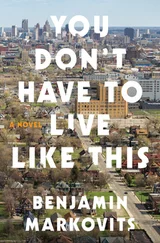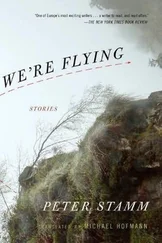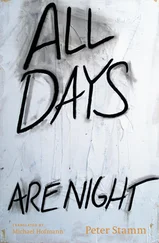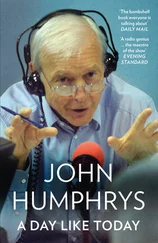“It must all seem terribly boring to you.”
“No,” said Andreas. “No, it’s not boring at all. Sometimes I envy you the children and Bettina. You’ve got on with your life.”
There was no one at the cemetery. Walter made straight for the grave, and Andreas thought he must have been there many times. Walter knelt down, and plucked a few twigs from a little bush that grew in front of the stone.
He didn’t mind that the grave was being leveled, said Andreas. He often thought about his parents, but his memories of them were attached to the places where they had lived, not this place where they were buried. Walter didn’t say anything. In all their phone calls over the years he had never talked about his parents. Nor did he speak about them now, but just about their grave and the flowers on it, which he had replanted in the spring, even though it was really no longer worth it.
They stood in front of the grave in silence. Then Walter said, Well! as if he had completed a task. His voice sounded a little less burdened as they picked their way through the rows of graves and he spoke of one or another deceased whom they had both known, a school friend of Andreas’s who had died very young in a traffic accident, the proprietress of a haberdashery store, Walter’s former music teacher. They parted company at the level crossing.
“The next time you come you stay with us,” said Walter. “Will you promise me that?”
Andreas promised.
“And you’ll stay for a bit longer?”
“OK.”
“Be good, then, and drive safely.”
All at once, Andreas believed there would be such a thing as a next time. He quickly hugged his brother, and then they each went their separate ways.
Andreas thought of Delphine, all the moving she had been put through as a child, such that her childhood memories were not attached to any particular place. She had said she could feel at home anywhere. Andreas wondered if that was a fault or a strength in her. Perhaps it would be simpler not to have any roots. It was like scattering the ashes of the dead. They were everywhere and nowhere. Whereas his childhood was just as much buried in this place as his parents were, but when he stood in front of their grave, he didn’t see much more than a stone with their names and dates on it. His memories were no more alive there than anywhere else. Only the sense of loss might be greater. Perhaps he shouldn’t have gone back — either that or he shouldn’t have left, like his brother. Then he might slowly have gotten used to the changes, just as you got used to the changes in your body, and yet seemed to be the same person from your childhood into ripe old age.
In the hotel, he packed his bags. He went down to the front desk and said he was leaving. It took the desk clerk a long time to make out the bill. Andreas took a postcard from a display, five sunny views of the village: the Catholic and Protestant churches, the town hall, the community center, and the steps up to some historic building, where long ago some freedom fighter had given an important speech. At last the clerk had finished adding up the bill, and Andreas put back the postcard and paid.
The easy mood of that morning had left him. Andreas felt tired and confused. He drove off aimlessly, heading west. He had the radio on, a classical music program that was comparing different recordings of the same piece of music. The host talked about the details of the various interpretations with two guests — a male and a female musician. One interpretation was too quick for them, another one dragged. They criticized soloists who made too much of themselves, and others who played with too little expression, or were imprecise, or with a show of feeling. Andreas tried to hear the differences they talked about, but for the most part he couldn’t.
The further west he got, the weaker the reception. More and more the music was interrupted by hissing, and then suddenly there was a different station, a French-language pop station, and a couple of excitable DJs who were talking nonsense and kept interrupting each other. Andreas pushed in the cassette that was in the player. It was the language course that he and Delphine had heard on the way here, the kind man who had cheese and sausage for breakfast, and took the bus to work, ate lunch in the cafeteria, where he had a choice of three delicious specials, and then went home at the end of his work.
After supper I sit down in front of the television and watch the news. The evening program is of no great interest to me. Usually, the interesting programs are on too late for me. I like to go to bed early. The night is quickly over. When the alarm clock goes off in the morning, I usually feel I haven’t had enough sleep. And the next day follows in the same way.
Andreas stopped at a rest stop. He sat in his car and listened to a man talking about his life. When the sentences stopped, his body cramped, and he started to tremble, as though in a fever. He choked, and then he sobbed, dryly and convulsively. When at last the tears came, he stopped trembling, and became calmer. He dropped his head on the steering wheel, and cried for a long time, not really knowing why .
The tape had kept on playing. When Andreas next heard it, a woman was speaking with strange emphasis.
I hurt myself. You hurt yourself. He hurts himself. We hurt ourselves. You hurt yourselves. They hurt themselves .
He took the tape out of the player. He got out of the car, and walked to the men’s room to wash his face. He dropped the cassette into a garbage bin that had thank you written on it in four languages. He sat down at one of the washable concrete picnic tables in the bright sun. When he had calmed down a bit, he drove on.
Fifty miles from Paris, Andreas took the highway west. He thought he had an aerial view of himself driving through the dark landscape, of which he had little sense. For a long time the road led through fields and woods, past scattered villages. Occasionally it brushed a town, and he could read advertisements for cheap hotels and shopping centers. Once, Andreas almost dropped off. His car had slowly drifted into the passing lane, without his noticing. It was only a loud, insistent car horn that woke him out of his dream. He jerked at the steering wheel, and the 2CV yawed off, wobbling wildly, and a car overtook him, so close that they almost brushed each other. Andreas’s heart beat wildly. He opened the window. Warm air flowed in, and the cheeping of the crickets was so loud he could hear it over the sound of the engine.
Andreas turned the radio on again. He caught one of his favorite programs, Du jour au lendemain , on France Culture . The host was interviewing a French writer, whom Andreas had never heard of and who appeared to be quite unreadable. He gave long answers, of which Andreas understood about half, even after he’d closed the window. The writer had once been religious, had even wanted to become a priest, but, having become a creator himself, a writer, he had begun to question God. Now he only believed in the strength of the Self, the life force, which was stronger than any effort, any pain, than even the death that surrounded us all. The life force of every individual was finally stronger than the absolute, sapped its strength, crushed it, brought it to its knees. This Self, upper case, he said. Andreas envied the man’s self-confidence. He had never had a very clear sense of himself. Perhaps that was why he had led such a regular life. The monotony of his days had been his only prop. Without a job, without an apartment, without a schedule, his dates with women and appointments with friends were the only fixed points in a menacingly empty landscape.
He thought of the evenings with Nadia, or rather the same evening over and over. Emptiness was repetition, he had thought at the time. But that wasn’t right. Emptiness lurked somewhere beyond repetition. Fear of emptiness was fear of disorder, of chaos, of death.
Читать дальше












